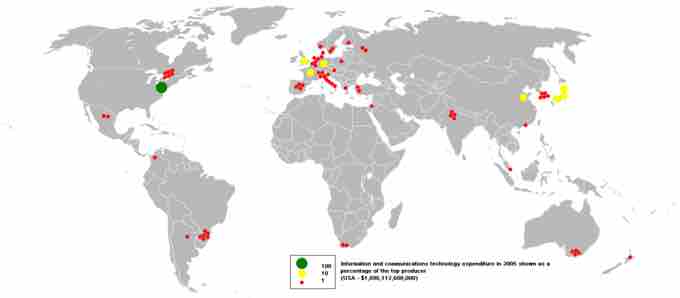William Fielding Ogburn (June 29, 1886 – April 27, 1959) was an American sociologist, statistician, and educator. Perhaps Ogburn's most enduring intellectual legacy is the theory of social change he offered in 1922. He suggested that technology is the primary engine of progress, but it is also tempered by social responses to it. Thus, his theory is often associated with technological determinism, a reductionist theory that presumes a society's technology drives the development of its social structure and cultural values.
Hard Determinism versus Soft Determinism
Hard determinists view technology as developing independent from social concerns. They believe that technology creates a set of powerful forces acting to regulate our social activity and its meaning.
Soft determinism, as the name suggests, is a more passive view of the way technology interacts with socio-political situations. Soft determinists still subscribe to the fact that technology is the guiding force in our evolution, but maintain that we have a chance to make decisions regarding the outcomes of a situation. Ogburn, in fact, proposed a slightly different variant of soft determinism, in which society must adjust to the consequences of major inventions, but often does so only after a period of cultural lag. Cultural lag, a term coined by Ogburn, refers to a period of maladjustment, which occurs when the non-material culture is struggling to adapt to new material conditions.
Stages of Technological Development
Ogburn posited four stages of technical development: invention, accumulation, diffusion, and adjustment.
Invention is the process by which new forms of technology are created. Inventions are collective contributions to an existing cultural base that cannot occur unless the society has already gained a certain level of knowledge and expertise in the particular area.
Accumulation is the growth of technology due to the fact that the invention of new things outpaces the process by which old inventions become obsolete or are forgotten—some inventions (such as writing) promote this accumulation process.
Diffusion is the spread of an idea from one cultural group to another, or from one field of activity to another. As diffusion brings inventions together, they combine to form new inventions.
Adjustment is the process by which the non-technical aspects of a culture respond to invention. Any retardation of this adjustment process causes cultural lag.

Expansion of Communications and Information Technology
Ogburn posited four stages of technical development: invention, accumulation, diffusion, and adjustment.